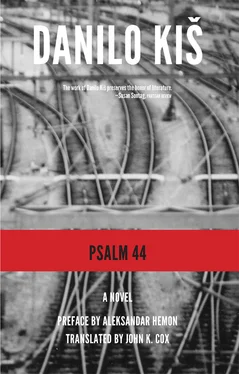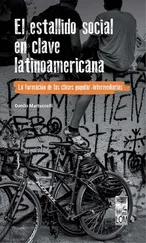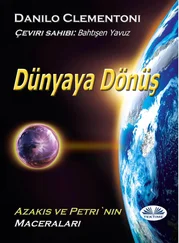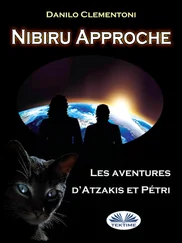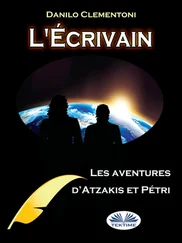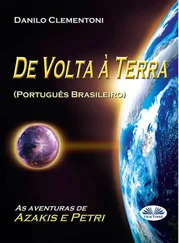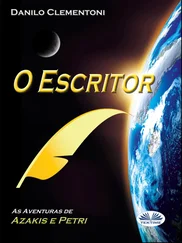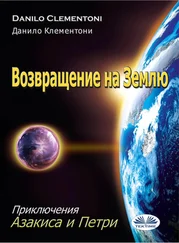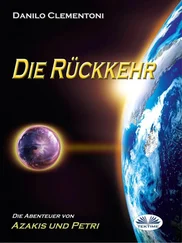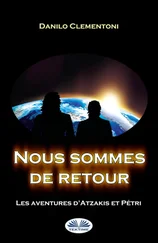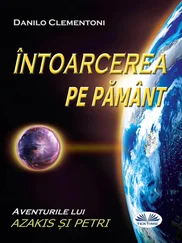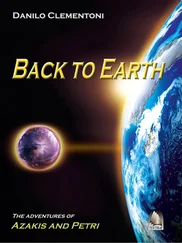And so all at once she found herself at the station, looking at the long row of sealed cars out of which peered phantomlike faces at the small grated windows and she recognized the Babel of cries for help that she herself had heard at the time she was transported in cattle cars of that same type, that outcry which becomes a dry and morbid whisper: in all the languages of Europe the word water being pronounced as if it were the very stuff of life, even more so than that ancient Hellenic ur -element and essential substance belonging to every living thing, along with air and earth, of course — the way that word now transformed itself on Polja’s lips, the chaos of the cattle car shrinking to the monotone whisper of a moribund. And then the train moved just as she caught sight of it, right in front of her nose like some enormous antediluvian dinosaur ejected from its watery home onto firm dry land several millennia after its epoch, and she sensed all at once the thirst in Jakob’s guts and in her own and she began to run down the line of cars, now starting to rock, and they collided with a bang and she was like a condemned soul having her guts gnawed out by the plague and she was utterly transformed into screaming into the cry into “Jakob! Jakob!” as if that reptile were beginning to rouse itself and make a getaway, gasping for breath, completely metamorphosed into that stegocephalian dinosaurian Babylonian and European “Water! Water!” and suddenly she saw a rag appear from a high, narrow window of the car ten meters in front of her, like a reliquiae reliquiarum of Jakob, and after that the hand holding that rag and waving it like death’s own flag — that clenched hand without a face, motioning with the rag — that was Jakob now, the Jakob who had remained when with a bang the stage and set had been destroyed and she looked backward: gray drifts of dust.
But Žana was still going on:
“Maks’s orders,” she said, not waiting for the flood of blood inside Marija to ebb, the blood that was pounding her and rocking her off her foundations: “Tonight at 2:30,” she said. “Get prepared and try to get some sleep. You need to be rested. I’ll wait for Maks’s signal: two long and two short knocks.”
“Okay. I’ll try,” Marija responded. “I’ll try to sleep at least a bit.”
Žana lay on her stomach in the straw, propped up on her elbows, head thrust between her palms; her legs trembled slightly. Chewing on a short piece of straw, she looked out through the crack in the direction of the fence. Periodically a fine edge of light slid across her face and tore open the intense darkness of the barracks; then Marija, without moving her head or disturbing the baby asleep on top of her, could see Žana’s profile with that straw in her mouth.
“She’ll be dead by dawn,” Marija said, but her voice made itself heard against her will; and then as if meant for herself: “I should return this sheet to Polja.” She heard Žana’s suppressed sigh and thought That is an answer , but right away she caught another whisper:
“So much the better for her. You understand: tomorrow it will be harder to die . Even in an hour or two it’s going to be harder”; and then, “It’s already hard enough to die.”
“Because of hoping?” Marija asked.
“I don’t know,” Žana replied. “Maybe because of hoping.” Then she got up and Marija realized, although she didn’t see it, that Žana had risen to give Polja the can with water; “Now it’s a human being that’s dying,” Žana said. “You understand: a human being and not an animal.”
Then Marija repeated what she had said a short while before, but she wasn’t thinking of that, she was already thinking I should return the sheet to Polja and she was wondering if Polja could hear the artillery and she was thinking it would be better if Polja couldn’t hear it, but all she said was:
“Yes, it’s on account of hope”; and Žana repeated:
“Up to now it was an animal dying. It’s easier, I believe, to die like that.”
The other woman didn’t respond. All she felt was the way her body was going numb from lying there, immobile, in the damp: the wet diapers she had wrapped around her naked body were releasing an icy moisture that her skin was absorbing from her stomach to the middle of her thighs; it gave the impression that her skin had become pasty and rotten like that of a corpse, although she didn’t really feel like she had skin at all anymore, rather just some gelatinous mass, which together with the wet rags was glued to her bones. But the child wasn’t cold; she thought: I folded Polja’s sheet over twice and laid it across the wet diapers so that the moisture wouldn’t reach the baby. I didn’t dare put the wet diapers on my stomach , she thought. I could only wrap them around my thighs, and I didn’t dare take off my underwear; it wouldn’t be good if I got my period now. It’s always so unpredictable; a few sniffles are enough to bring it on ; then she thought that it would be best if she got up and moved the diapers a bit lower. It was probably just past ten now, and Maks was going to give the signal after two, and then she would have to move and she was frightened by the prospect of her legs completely freezing up and turning into some icy, inert mass.
Thus it was necessary to undertake something, above all to push those damp diapers lower and to return the sheet to Polja. But then, on the very cusp of the movement with which she wanted to raise the infant off of herself and to position him so she could stretch her limbs and give Polja back the sheet, she stopped, restrained the movement that was almost finished being born, feeling the way its mild charge crept across her body (a charge that should have set her hand into motion) and sagged from the tips of her fingers: Polja is going to die , and she sensed with bitterness that it was precisely this thought that stayed her limbs, not because she now at long last comprehended that Polja was really not coming with them (she was conscious of that: though Polja would remain alive until two, she would nevertheless not be able to come with them), but rather because she realized that she herself had acquiesced to the fact that Polja would not be going with them.
“Žana,” she said, and when she noticed the other woman had moved: “Help me pull Polja’s sheet out from under the baby.”
“He has more need of it, the baby,” Žana said unexpectedly. “And you do too. . Do you understand. .?”—and before Marija could gather her thoughts and say anything, she heard the rustling of the straw and the quiet knocking of the tin can.
“You see, it’s too late for that,” said Žana. “For Polja, it’s too late already.”
“What time is it?” Marija asked, at the same time as a narrow blade of light scraped over Žana’s face and she saw her lips moving:
“It’s not yet midnight. I don’t think it’s midnight yet.”
Marija was just then shifting her frozen legs.
“I got my period,” she said. “Or so it seems.”
“That’s from the fear,” Žana said; then she corrected herself: “From the excitement.”
“No,” Marija said. “From the wet diapers. I didn’t dare go to sleep (it was just some kind of half-dozing state). I should have changed position”—then she sensed once more Polja’s mute presence in the room (she felt it from the silence) and she remembered that she was supposed to make more diapers out of her sheet. But she didn’t get up. She couldn’t begin tearing Polja’s sheet right away and making diapers. And sanitary pads. Then she asked, “How old was she?” but she already knew that she wasn’t going to be able to stand it another second in that position and that her stomach and legs were about to disintegrate abruptly like in Poe’s story about the corpse of M. Valdemar, which has been artificially kept alive by means of hypnotism and which then suddenly dissolves into gooey, slimy rot. And even before she could hear Žana’s answer, “Seventeen, I think,” she had already pushed her hand under the child to extract Polja’s sheet, which she then laid next to her on the straw and she laid the child across it and wrapped it up with the other hand. Then she turned to the side for a moment, felt for the edge of the diaper, arched her back, and started unwrapping the wet, blood-covered rags around her legs. “She seemed older to me,” she said so that her rubbing the dry edge of a diaper on her benumbed skin to wipe away the blood couldn’t be heard.
Читать дальше
